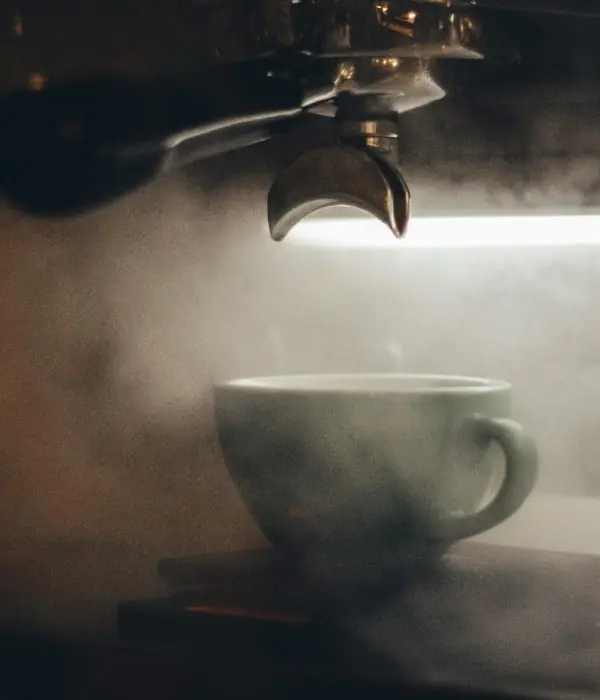Achieving the ideal coffee taste requires a careful balance of minerals and bicarbonate in your water. The positive ions of calcium and magnesium attract the flavor molecules of coffee and extract the flavor from the bean.
Since these flavor molecules are acidic, they can make the coffee taste sour unless there is sufficient alkalinity (in the form of bicarbonate) to buffer them.
Bicarbonate reacts with the flavor molecules to release CO2 and provide the coffee with a smooth, rich taste. This combination of acidity and alkalinity is what gives espresso coffee its “crema,” the smooth texture that enhances its taste. However, the bicarbonate cannot be too high, so it does not mask the acidic flavor molecules.
Therefore, the balance of minerals and alkalinity is crucial for achieving the proper taste balance.


This chart shows a range of mineral and bicarbonate concentrations commonly accepted for brewing good coffee.
Using water outside of this zone will result in coffee with an off taste.
COFFEE WATER falls approximately in the middle of the spectrum, assuring you that coffee minerals are suitable for any brewing method.
The minerals in your water play a vital role in the flavor extraction process during coffee brewing.
By understanding how different minerals interact with coffee, you can optimize your water for a superior brew.
For those interested in diving deeper, we recommend resources from the Specialty Coffee Association and other authoritative sources.
Following guidelines from the Specialty Coffee Association and formulas from Barista Hustle, you can create a brewing water that enhances flavor and smoothness.
When water contains a high concentration of hardness, which typically includes calcium or magnesium, and you heat it in coffee or espresso machines, this hardness combines with the carbonate alkalinity present in the water. This combination results in the precipitation of minerals, forming scale within the machine.
Conversely, if the mineral and alkalinity levels in the water are too low, carbon dioxide from the air dissolves into the water, creating carbonic acid. This acidic water can corrode your coffee equipment, potentially causing damage. To avoid this, it’s crucial to ensure there is enough alkalinity in the water to buffer the acidity.


Having a small amount of scaling in coffee equipment can actually be beneficial. It forms a protective coating inside the tank, preventing the pH from dropping to levels that could cause corrosion from carbonic acid to eat up your equipment.
Therefore, striking the right balance between hardness minerals and carbonate alkalinity is essential for coffee equipment maintenance.
By managing scaling and corrosion through regular cleaning and balanced water use, you can keep your machines in top condition and your coffee tasting great
| Service | Cookies | Description |
|---|---|---|
| Google Analytics | _gat_gtag, _ga, _gid | Used to distinguish users and sessions for web statistics purposes. |
| Service | Cookies | Description | |
|---|---|---|---|
| Google Analytics | _gat_gtag, _ga, _gid | Used to distinguish users and sessions for web statistics purposes. |